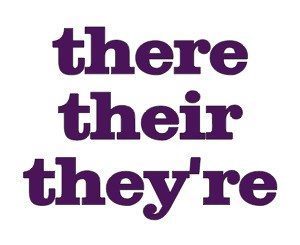Information hub
All the latest views and news here
Why was my training contract application rejected?
This is a key question many people find themselves asking during the recruitment process – “Why was my training contract application rejected?“. The team has spent the last few weeks diligently screening your training contract and vacation scheme applications. We’ve been seriously impressed by the astonishing academic ability, wide-ranging work placements and amazing extra-curricular pursuits you’ve undertaken. Not to mention the languages spoken, sports excelled at and musical instruments mastered!
It’s a very difficult job to whittle down over a thousand of these applications to those who we want to meet at interview. So we thought it would be helpful to provide a little insight into our methods…
If you haven’t made it to interview stage, firstly take a deep breath and try not to take it personally; the bar is set very high and a set-back now does not mean you won’t go on to secure a Training Contract – get back on the horse. A legal career demands resilience and perseverance.
Once you’re over the sting of rejection, take a look back over your application. Try to read your words objectively and consider where you could have made changes and improvements to your application. Writing a good application takes a very long time so learning from your mistakes now, will make all the difference in your next applications.
There are four main reasons why applications don’t progress:
1. Your academic history could be a reason you are being rejected

You need to be smart to be a lawyer at a top firm so we are very strict on our entry requirements of AAB (or equivalent) at A-Level and a strong 2:1 at degree level. We absolutely consider mitigating circumstances, so don’t be afraid to put these down. If you have some extra context you want to provide, which isn’t an official mitigating circumstance, then we also have an “Additional Information” box you can use.
Minimum entry requirements serve two purposes:
(i) they are a way of gauging whether you’ll have the ability to successfully tackle the intellectual challenge of commercial law.
(ii) they reassure us that you will pass the further qualifications you will need to sit before qualifying as a solicitor.
With the huge volume and incredible quality of applications we receive, we need to be very strict with academic results and sadly this is a common reason why applications do not progress.
2. Your training contract application could have been rejected because you lacked relevant work experience
It can seem a little Catch-22 that you need to have work experience to apply for work experience… but with the fierce competition for vac schemes, you really do need to capitalise on the experience you’ve had and the transferable skills you’ve gained. Relevant work experience shows us that you’ve been exposed to the type of workplace we operate in and that you’re prepared for life in the commercial world.
Don’t think we only care about the vac schemes or law firm experience you’ve had – show us how much you’ve picked up along the way through different avenues.
The best candidates will tailor their work experience to the firm they’re applying to – some examples here:
Experience: Two days spent shadowing management consultants who were advising Shell on a new project in the Middle East
Example: Shearman’s industry focus on energy, award-winning Project Development team, long established office in Abu Dhabi and new office openings / partnerships in Dubai and Saudi Arabia
Experience: Summer holidays serving champagne and canapés at weddings
Example: Working with demanding customers, people very different to yourself, and the importance of learning on the job
Experience: Working in family business newsagent
Example: Understanding of the business lifecycle which can be supported by the full service lawyers at Shearman (from bank finance, to M&A, to litigation, to restructuring)
Experience: Paralegal experience
Example: Real understanding of trainee tasks and the pressures and demands of being in a law firm
Experience: Investment banking internship
Example: A sustained period within a business, getting used to economic jargon and seeing first-hand what businesses require from lawyers in transactions
Experience: Mini pupillage
Example: The research and advocacy required of contentious lawyers and maybe an insight into why you don’t want to be a barrister and are now focusing on becoming a solicitor
Experience: Saturday job at Tesco
Example: Working long hours, being polite and efficient throughout, adding value to teams by having a different perspective and suggesting changes/innovation, balancing work with your studies and other commitments
If you haven’t had any work experience at all, you should really try to secure some. Even attending open days with law firms is a good way to start thinking about these skills, prepare you for the career and acclimatise to an office environment.
For more information on the importance of work experience, this video will help:
3. Why was my training contract application rejected? Did I do enough research?
We ask three open text questions on our application forms. Your answers show us your understanding of the legal industry, the effort you have put into your research, your passion for Shearman & Sterling and your interest in a legal career. They also show whether you can write concisely and with impact.
Sure, you might have written beautifully about how Shearman competes with other law firms, but are you just thinking from your own perspective? The best candidates focus on our clients and think about how Shearman is different in a commercial sense. Impress with your understanding of law as a business and show off the research you’ve done into the work we do, the clients we’ve won and retained and the industries we’ve broken into. Focusing on the open day you attended and the friendly trainees you met – whilst great (and reassuring to us!) – doesn’t demonstrate your commercial nous and can come across as a bit “fluffy”.
As a Shearman trainee you’ll get wide-ranging opportunities from going on a secondment abroad, to contributing to life-changing pro bono cases; but 99% of your time is going to be spent doing work. Therefore, the focus to your answers (and in fact your whole application) should be the type of award-winning, ground-breaking, first-in-jurisdiction-first-of-kind amazing work which our lawyers get to experience every day. That should be your motivation for applying to Shearman.
And remember, the answers are limited to 250 words for a reason. Don’t try to cover too many points, this will mean you don’t go into depth and don’t get to demonstrate your understanding/research/passion. Similarly, don’t over focus on one area making us worry that you’re so wedded to a particular practice area, you’ll hate the other 18 months of your TC.
A great place to start your research on Shearman & Sterling is Student Chambers.
4. Spelling and grammar mistakes will always result in your training contract application being rejected

As a trainee, that 200 page Sales and Purchase Agreement / 60 page witness statement / 400 page Power Purchase Agreement you’ve been perfecting is going to come under a lot of scrutiny – from your supervisor, the partners, your client, the other side and probably a load of other parties involved in the case or transaction too.
Getting spelling, grammar and formatting wrong can really undermine the good work you’ve done and result in people losing confidence in your ability. As a result, lawyers are super strict about attention to detail, so the Graduate Recruitment team has to be as well – and mistakes on your application will not get through.
The main issues we see are:
- Unnecessary or missing apostrophes – common mistakes are “its”/”it’s” (and even “its’”!), “client’s”/”clients’”/”clients”
- Misuse of words – lead / led, lose / loose, practice / practise, compliment / complement
- Typos or autocorrects that make sentences nonsensical
- Copy and pasting into the application form can make formatting go crazy
- People trying to “play” the word count by chopping out linking words or even not inputting spaces between words!
- Inconsistent use of the firm name (sometimes “Shearman”, sometimes “S&S” sometimes “Shearman and Sterling”)
- Sentences changing tense – this usually happens when you’ve been writing the application in stages
- Spelling the firm name wrong – or even putting a different firm’s name down!
Finally, don’t forget that we’ll be reading your application holistically – so review it all in one go before submitting. Have you shown good attention to detail with the formatting, spelling and grammar throughout? Have you written about the transferable skills you can bring to the role through your work experience and extracurricular pursuits?
Have you tailored your application to Shearman in particular? Do you come across as a well-rounded and interesting candidate with an individual story to tell at interview stage?
Hopefully this has helped emphasise how much work needs to go into an outstanding application form, so take your time and make each one worth it!
If you do go on to secure an interview, then why not check out our other blogs and videos on interview tips, researching firms and what to do if you don’t make it through to the vac scheme.
If you are still asking yourself ‘Why was my training contract application rejected?” you can find more information in this video:
Can I reapply for a Training Contract?
Yes! We positively welcome people to reapply. Many of the mistakes listed above can be corrected over time, especially if you need to build up your work experience or carry out further research in order to answer the application questions. AllAboutLaw have good advice on how to deal with training contract rejection.
Good luck!


